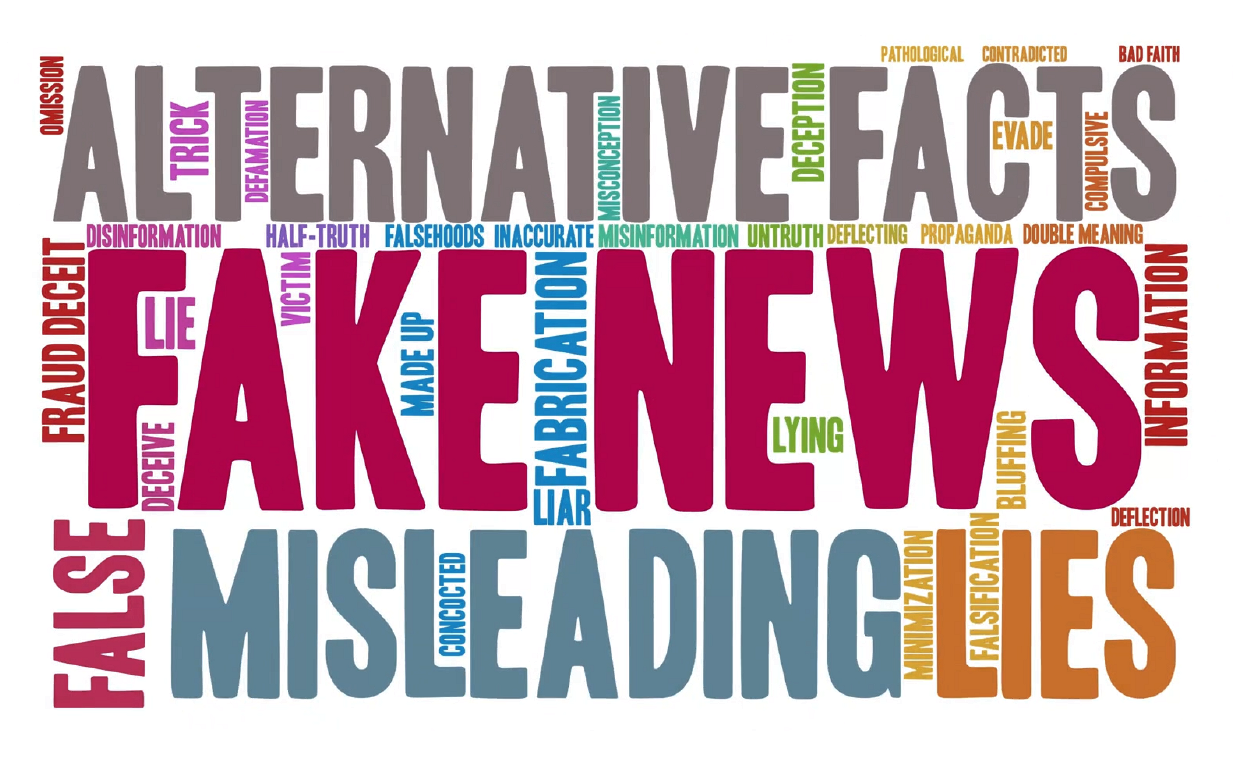Sedona AZ (March 24, 2016) – The following is a letter to the SedonaEye.com editor:
New Evidence in ACC Public Records Case
Information and Perspective by Warren Woodward
Sedona, Arizona ~ March 23, 2016
 Today I filed a Motion For In Camera Review of Records in my Public Records lawsuit against the Arizona Corporation Commission (ACC).
Today I filed a Motion For In Camera Review of Records in my Public Records lawsuit against the Arizona Corporation Commission (ACC).
An in camera review means the judge looks at the documents the ACC redacted and sees if they were redacted for legal reasons or not. Since the ACC invented a redaction classification called “state of mind,” a classification that has no basis in Arizona law, there are definitely some illegal redactions the ACC made.
The ACC recently sent me two letters. One came with documents they had hid from me for over a year. The other came with an “Index of Records.”
An Index of Records is a list of redactions that were made and the reasons why. I checked the list against the actual documents received from the ACC in my Public Records Request and there was very little correspondence between the redactions made and the ACC’s list. The list is so poorly done, so grossly inaccurate, it’s like whoever did it was drunk or something.
The (sadly) funny part is the list was sent to me by the ACC’s new “ethics officer,” a lawyer the ACC hired at $130K/yr. to deal specifically with stuff just like my case. (Note to ACC: You wasted the Taxpayers’ money on this guy. Money can’t buy you ethics anyway.)
I think if the “ethics officer” had any real ethics he’d come clean, admit the ACC’s culpability in this case and ask for forgiveness. Maybe he needs a moral compass. What do you think, this one or that one — or both?
Evidently, the ACC needed more than the “ethics officer” on the case. Despite the ACC having an entire Legal Division staffed with about ten lawyers, they also hired the legal firm of Cantelme and Brown to deal with me. Cantelme and Brown bill themselves as “A Professional Liability Company.”
I am not sure if that means they protect against liability or create more of it.
Certainly the “ethics officer” has created more because, in addition to the fraudulent Index of records, the “ethics officer” also sent me stuff that shows the ACC hid records from me, has not been legally prompt in supplying me with records, and cannot be trusted to respond in legal compliance to an Arizona Public Records Law request.
You can read the details in my Motion (+ Appendix) which (less Exhibits) is below.
 MOTION FOR IN CAMERA INSPECTION OF RECORDS
MOTION FOR IN CAMERA INSPECTION OF RECORDS
Plaintiff, Warren Woodward, in the above titled action, moves that the Court issue an Order to Defendant to produce all records relative to Plaintiff’s Public Records Request of December 15, 2014 (“Request”), in order for the Court to conduct an in camera inspection of both the redacted documents related to this case as well as any documents that may still be secreted by Defendant.
Such a request is in keeping with the procedure of other Public Records Law cases such as Hodai v. City of Tucson and Griffis v. Pinal County.
Such a request is necessary due to both the evidence brought forth in Plaintiff’s Complaint for Statutory Special Action (“Complaint”) as well as new evidence recently obtained by Plaintiff from Defendant showing that Defendant cannot be trusted to respond in legal compliance to an Arizona Public Records Law request.
On March 16, 2014, Defendant sent Plaintiff an “Index of Records being withheld” (“Index”) and a cover letter for same. The letter and Index are included as Exhibit P.
In the Index, Plaintiff has a redaction category entitled, “State of Mind/Legislative Privilege, see Arizona Independent Redistricting Commission v. Fields, 206 Ariz. 130, 75 P. 3d 1088 (App. Div. 1 2003).”
Plaintiff read Arizona Independent Redistricting Commission v. Fields and there is no mention whatsoever of a “state of mind” redaction. Arizona IRC is about legislative privilege, not “state of mind.” If Defendant meant to redact for legislative privilege then Defendant should have redacted for that, not “state of mind.” Defendant appears to be attempting to legitimize Defendant’s bogus “state of mind” redactions by reclassifying them now as “State of Mind/Legislative Privilege.”
Even so, there would still be a problem with invoking legislative privilege in this instance because, while the ACC does at times exercise a legislative function, Plaintiff’s Request involved a subject that did not include a legislative function. The ACC voted for the Arizona Department of Health Services “smart” meter study, the subject of Plaintiff’s Public Records Request (“Request”), under Docket # E-00000C-11-0328. That Docket is described as “a Generic Docket for the Investigation of Smart Meters,” which is not an ACC legislative function (see Exhibit Q).
There is an even bigger problem with Defendant’s “state of mind” redactions, however. “State of mind” does not exist in Arizona as a legitimate redaction. The closest Arizona IRC comes to discussing anything resembling a “state of mind” redaction is in its discussion of “deliberative process privilege” at ¶ ¶ 33 and 34.
 B. Deliberative Process Privilege
B. Deliberative Process Privilege
¶ 33 The IRC also argues that the trial court erred by compelling disclosure of the contested documents because they are protected by the “deliberative process privilege.” The deliberative process privilege is a federal common law privilege preserved in “Exemption 5” of the Freedom of Information Act, 5 U.S.C. § 552(b)(5) (1996 (“FOIA”), which shields from mandatory disclosure “inter-agency or intra-agency memorandums or letters which would not be available by law to a party other than an agency in litigation with the agency.” Paisley v. CIA, 712 F.2d 686, 697 (D.C.Cir.1983) vacated in part by 724 F.2d 201 (1984); Branch v. Phillips Petroleum Co., 638 F.2d 873, 881-82 (5th Cir.1981). The privilege is a qualified one, FTC v. Warner Communications, Inc., 742 F.2d 1156, 1161 (9th Cir.1984), and is designed to promote open and frank discussion among government decision-makers by reducing fears that “each remark is a potential item of discovery and front page news.” Dep’t of the Interior v. Klamath Water Users Protective Assoc., 532 U.S. 1, 8-9, 121 S.Ct. 1060, 149 L.Ed.2d 87 (2001). Thus, unless the privilege is overcome, it protects from disclosure materials that are both predecisional and reflective of a government official’s deliberative process, which are opinions, recommendations, or advice about agency policies. NLRB v. Sears, Roebuck & Co., 421 U.S. 132, 151-54, 95 S.Ct. 1504, 44 L.Ed.2d 29 (1975); FTC, 742 F.2d at 1161.
¶ 34 The Coalition contends that the deliberative process privilege does not cloak any IRC documents because Arizona’s public records law, A.R.S. § 39-121 to -161 (2001 & Supp 2002), does not contain a provision equivalent to Exemption 5 of FOIA, and Arizona courts have not acknowledged a common law privilege. See Star Pub’g Co. v. Pima County Attorney’s Office, 181 Ariz. 432, 434,891 P.2d 899, 901 (App.1994) (noting Arizona courts have not passed on viability of deliberative process privilege). We need not consider whether a deliberative process privilege exists in Arizona. Even assuming its viability, the IRC does not contend this privilege affords any more protection than the legislative privilege, which we have found can apply to shield IRC documents from disclosure. Thus, we leave the issue for resolution in another case.
Thus it is clear that Arizona IRC does not support Defendant’s “state of mind” contrivance, and Defendant has cited a case which actually supports Plaintiff.
Additionally, the issue of “deliberative process privilege” was reviewed de novo as recently as 2010 in Rigel Corp. v. State, 225 Ariz. 65, 234 P.3d 633 (App. Div. 1, 2010). Rigel states unequivocally (at ¶ 2) that “… this privilege does not exist under Arizona law.” Again unequivocal, at ¶ 41 Rigel states, “To date, our legislature has not codified any such privilege in the Arizona Public Records statutes. See A.R.S. §§ 39-121 to -161 (2001 & Supp.2008). We will not, via decisional law, create this privilege at this time.”
So, there is no “state of mind” redaction, nor is there any similar “deliberative process privilege” in Arizona.
Additional new evidence, discussed in detail in the Appendix to this Motion, shows that Defendant has 1) supplied Plaintiff with a grossly inaccurate, and therefore fraudulent, Index of Records; 2) continued to secrete records from Plaintiff, and 3) has not been legally prompt in responding to Plaintiff’s Public Records Request.
RESPECTFULLY SUBMITTED this 23rd day of March, 2016.
By
Warren Woodward
Sedona, Arizona 86336
Copies of this Motion for In Camera Inspection of Records were mailed on this 23rd day of March, 2016 to attorneys for Defendant:
David J. Cantelme, D. Aaron Brown, 3003 N. Central Ave., Ste. 600, Phoenix, AZ 85012
Christopher C. Kempley, 1200 W. Washington St,, Phoenix, AZ 85007
APPENDIX
ADDITIONAL EVIDENCE OF DEFENDANT’S NONCOMPLIANCE WITH ARIZONA PUBLIC RECORDS LAW
Additional evidence of Defendant’s noncompliance with Arizona Public Records Law is as follows:
Plaintiff has compared Defendant’s Index of Records to the actual Records themselves. There is a huge, extraordinary difference between the actual redactions made by Defendant and those listed in the Index of Records that Defendant provided. The difference is so great it calls into question Defendant’s competence and/or honesty. Either way, Defendant’s Index of Records is so totally inaccurate as to be a disgrace. Plaintiff’s page-number-by-page-number comparison of Defendant’s Index of Records to Records actually received from Defendant is included as Exhibit R.
On March 7, 2016, Defendant sent Plaintiff a letter including various documents that, by Arizona Public Records Law, should have been – but were not – part of Defendant’s response to Plaintiff’s December 15, 2014 Public Records Request (mistakenly referred to by Defendant in the letter as Plaintiff’s December 14, 2014 Public Records Request). Defendant’s letter and the previously missing documents are included as Exhibit S.
Several things are noteworthy about this new evidence. First, it’s been over a year since Defendant first responded to Plaintiff’s Request, and exactly one year to the day since Plaintiff realized Defendant had shorted him on the documents related to his Request and demanded Defendant do the Request over. Plaintiff specifically mentioned the Jodi Jerich/Will Humble email exchange as something that was missing (Plaintiff was just lucky in catching Defendant in that violation as explained previously in Plaintiff’s Complaint).
A response to a Public Records Request that takes over a year is not in accordance with the promptness required by Arizona Public Records Law. A.R.S. § 39-121.01(D)(1) states, “The custodian of such records shall promptly furnish such copies ….” A.R.S. § 39-121.01(E) states, “Access to a public record is deemed denied if a custodian fails to promptly respond to a request for production of a public record ….” Over a year is definitely not prompt. In short, Defendant has violated the law.
Also, the language used in Defendant’s letter is an attempt to blame the victim, the Plaintiff, for Defendant’s legal violation. Defendant wrote:
“First, you have indicated that you are dissatisfied at having not received certain documents from the Arizona Corporation Commission, despite having received them separately from the Arizona Department of Health Services. Accordingly, I am forwarding you a copy of two emails, a total of three pages, documenting an email exchange between the Commission’s Executive Director and Mr. Will Humble of the Department of Health Services.”
Defendant’s reasoning as expressed above is faulty. The legal issue is not 1) the requester’s satisfaction, or 2) whether that requester has already received documents from another agency. The actual legal issue is whether all records requested have been received by the requester from the agency to which the request was made. The actual legal issue is also whether those records have been received promptly. Defendant failed on both legal counts.
Because Defendant secreted the Jerich/Humble exchange from Plaintiff, Plaintiff surmised that other documents had been secreted as well. Plaintiff was correct. Also included in Defendant’s March 7, 2016 letter was a Memorandum from (then) Arizona Corporation Commission (“ACC”) Utilities Division Director Steven Olea recommending a “smart” meter study by the Arizona Department of Health Services (“ADHS”). Defendant rationalizes this illegal secretion of records by writing that Plaintiff would have received the Memorandum anyway because Plaintiff is on the service list of the ACC docket in which the Memorandum was filed. Whether Plaintiff received documents by other means – documents that should have been included in the response to his Request – is not the legal issue. Indeed, in Defendant’s response to Plaintiff’s Request there were several instances of Plaintiff receiving documents that Plaintiff had already received by other means. Some of the documents that Plaintiff received were Plaintiff’s own writings. Could Defendant have legally not included those in Defendant’s response to Plaintiff’s Request because Plaintiff already had them? According to Arizona Public Records Law, the answer is No. Defendant does not get to withhold documents because Defendant imagines or even knows that Plaintiff has received those documents by other means. The legal issue is: Did Defendant supply all the documents relevant to Plaintiff’s request, and did Defendant do that promptly? Certainly the answer in this case is No and No.
Defendant also wrote:
“In addition, as you note in your Special Action Petition, it appears that one page of the documents provided to you was inadvertently submitted in blank. I have located that page and am sending it to you at this time. I have made redactions as shown on the document for state of mind communications and company sensitive information.”
Despite clearly spelling out to Defendant exactly which document was blank, Defendant got it wrong anyway. The only reference to a blank page in Plaintiff’s Complaint is at ¶ 24. There Plaintiff wrote:
Note also that one of the emails in the thread, the email sent June 3, 2014 at 4:38 PM from “bizhub_751” to Maureen Scott, was one in which in Plaintiff’s version (seen reprinted in Exhibit G as well as in Exhibit B, Part 1, pp. 5 & 6) there was no message whatever, just a blank piece of paper.
Yet as can be seen in Exhibit S, Defendant did not supply any email sent June 3, 2014 at 4:38 PM from “bizhub_751” to Maureen Scott. Instead, Defendant supplied a different missing document, a January 31, 2014 email thread involving Brenda Burns, Kelly Aceto and Thomas Galvin. That makes two documents that Defendant had secreted from Plaintiff, in addition to the Jerich/Humble one. Plaintiff wonders, then, how many other missing, secreted documents there are, and Plaintiff again calls for a criminal investigation as the only way to know for sure what other documents Defendant is secreting. As was pointed out in Plaintiff’s Complaint, secreting Public Records is a felony offense.
Additionally, Plaintiff completely rejects Defendant’s “inadvertently submitted in blank” excuse. Inadvertence might be a valid excuse for a blank page in Defendant’s first response to Plaintiff’s Request, but not after Plaintiff gave Defendant two more chances to get Defendant’s response right. In such a circumstance, Defendant earns the title of scofflaw.
As well, note that in both the document and letter Defendant supplied, Defendant has persisted using Defendant’s illegal contrivance, the “state of mind” redaction.
All of the foregoing is just more proof of Defendant’s incompetent, arbitrary, capricious, and willfully obstructionist approach to complying with Arizona Public Records Law. By the new evidence provided, as well as that provided in Plaintiff’s Complaint, it is clear that Defendant cannot be trusted to respond properly and legally to a Public Records request, and that Defendant has violated Arizona Public Records Law repeatedly.

Read www.SedonaEye.com for daily news and interactive views!


Hey SedonaEye.com,
This new video from Brian Thiesen is quite literally explosive information which every homeowner needs to know.
As you may know, so-called “smart” meters have caused thousands of home fires and explosions — and even fatalities. But corrupt politics and money have swept the whole thing under the rug.
Brian now explains how and why this is all occurring, including whistleblower testimony, reams of new evidence and court documents. This is exactly what your utility does not want you to see.
Watch it now: https://takebackyourpower.net/smart-meter-fires-2016-video
Onward,
Josh del Sol
Articulate as always.
Sedona,
Arizona utilities are trying to make ALL customer’s electric bills more complicated and more volatile. At the same time, they’re pushing the same solar policies that recently killed the solar market in Nevada. This is an attack on our energy freedom and we need you to speak out. Say NO to ambushing Arizona with these new volatile charges.
Plan to make your voice heard this Thursday in Kingman and Nogales on March 31st.
If you live in the Kingman or Lake Havasu City area, please attend the public hearings on March 31st. You may find more information on Facebook for Kingman and Lake Havasu. Please spread the word.
Kingman – March 31, 1:00 – 3:00pm
General Administration Bldg
700 West Beale St.
Kingman, AZ
Lake Havasu City – March 31, 6:00 – 8:00pm
Lake Havasu City Police Department – Meeting Room
2360 McCulloch Blvd. North
Lake Havasu City, AZ
What are demand charges?
Unisource is asking the ACC for new demand charges — which are notoriously anti-consumer– that will jack up Arizona families’ electric bills and set a precedent for utilities in the state. Demand charges are complicated and confusing. Your electricity will cost more for the whole month depending as a result of just one moment of high energy use. If your oven and washing machine are one at the same time, you get slapped with a high charge. If your AC kicks on at the same time you’re blowdrying your hair, you get slapped with a high charge.
Last year, one Arizona utility exec even said he wouldn’t put his grandma on a demand charge!
You should also contact the Arizona Corporation Commission to share your concerns.
Be sure to Email them at mailmaster@azcc.gov
Or use online comment form
Or call 1-800-222-7000
Reference Docket #: E-04204A-15-0142
Most Arizona utilities are asking for the same rates, that’s why we all need to speak up now.
Keep up the good fight,
TUSK Team
Visit us at dontkillsolar.com or get updates on our Twitter or Facebook.